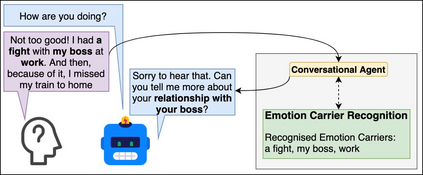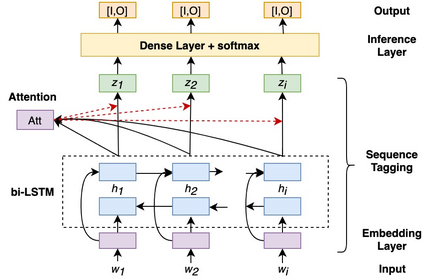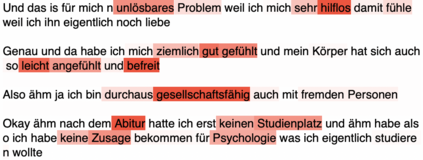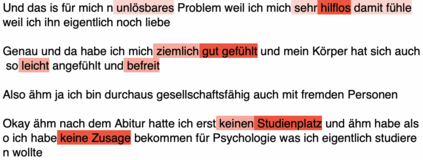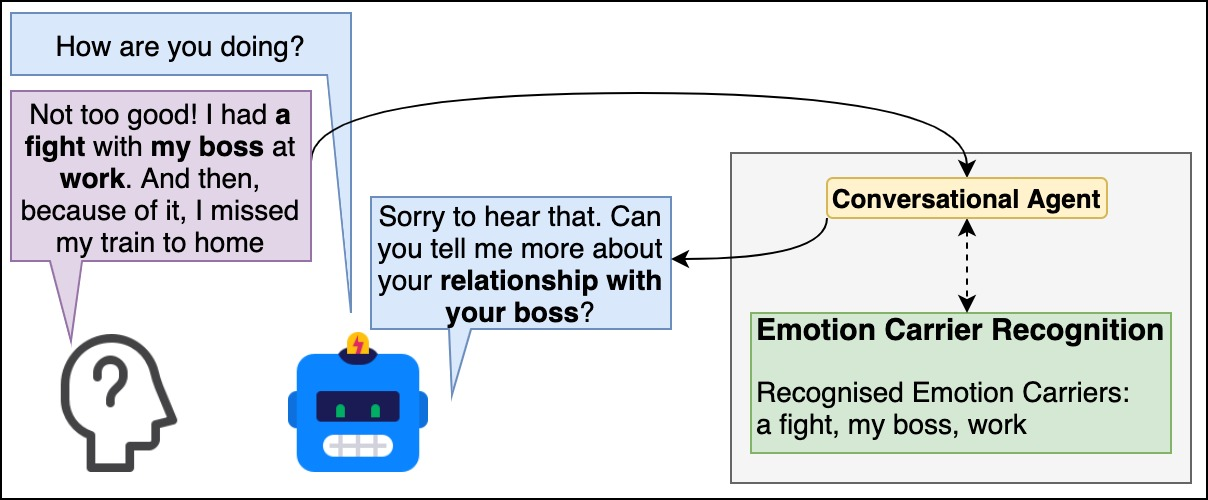Personal Narratives (PN) - recollections of facts, events, and thoughts from one's own experience - are often used in everyday conversations. So far, PNs have mainly been explored for tasks such as valence prediction or emotion classification (e.g. happy, sad). However, these tasks might overlook more fine-grained information that could prove to be relevant for understanding PNs. In this work, we propose a novel task for Narrative Understanding: Emotion Carrier Recognition (ECR). Emotion carriers, the text fragments that carry the emotions of the narrator (e.g. loss of a grandpa, high school reunion), provide a fine-grained description of the emotion state. We explore the task of ECR in a corpus of PNs manually annotated with emotion carriers and investigate different machine learning models for the task. We propose evaluation strategies for ECR including metrics that can be appropriate for different tasks.
翻译:个人叙事(PN) — — 个人经历中的事实、事件和思想的回忆,经常用于日常对话。到目前为止,对PN的探索主要用于价值预测或情绪分类(如快乐、悲伤)等任务,然而,这些任务可能忽略了更细微的、对理解PN可能有用的信息。在这项工作中,我们提议了一项新颖的叙事理解任务:情感载体识别(ECR)。情感载体,包含旁听者情感的文字碎片(如失去祖父、高中重聚),对情绪状态作了精细的描述。我们探索了一套配有情感载体手动说明的PNPS系列中的ECR任务,并调查了这项任务的不同机器学习模式。我们提出了ECR的评价战略,包括适合不同任务的指标。

